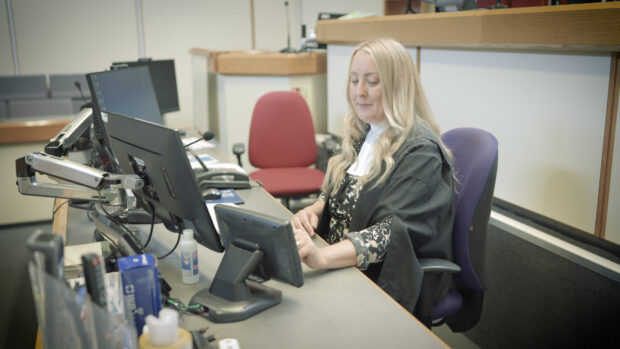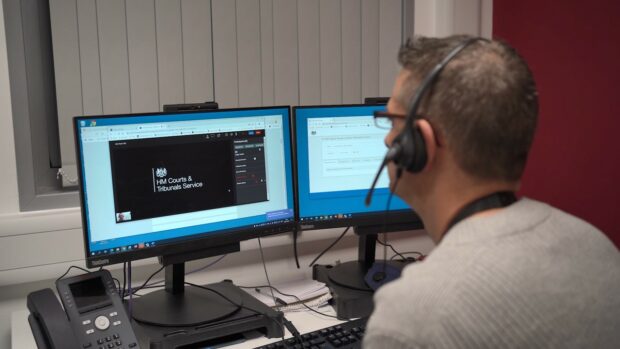Court and tribunal reform
As we near the end of Juror Appreciation Week we hear from Jemima, who recently served on a jury. She explains more about her experience and how she saw justice in action outside of her normal day job.
Jury trials are a critical part of the justice system and date back hundreds of years. But how exactly are people selected for the process, and what happens when they are called to serve? Our latest blog explains more.
Mediation is soon to be an integral part of the small claims process, meaning parties will need to attend an appointment to try and resolve their case ahead of having a court hearing. Rosemary Rand, Deputy Director and Service Owner for Civil, and Chris Kane, Head of the Small Claims Mediation Service, explain why the service is changing and what the benefits are.
Our Civil, Family and Tribunals Programme Director Rachel Hunt explains how reform across the jurisdictions will move forward to get the technology right and provide a more reliable and consistent service for public and professional users.
In a recent blog, we set out how we aim to deliver the remainder of our Reform Programme over the next 12 months. Here, Crime Programme Director, Daniel Flury, describes in more detail what this means for crime reform.
HMCTS CEO Nick Goodwin outlines adjustments to the Reform Programme to boost efficiency and functionality of our existing technology, as well as provide a more consistent and reliable service for public and professional users.
Crime Programme Director, Daniel Flury, shares an update on the implementation of Automated Track Case Management.
Since the pandemic remote hearings have become an integral part of the justice system. Senior Service Manager, Claire Jukes, explains how we’re developing the remote hearings of the future.
In the latest episode of Inside HMCTS, our focus turns to an important and timely topic – how we're making remote hearings more accessible for neurodivergent people.
Our Head of Insight, Luc Altmann, shares his experience of presenting at Organisation for Economic Co-operation and Development (OECD) Global Roundtable on Equal Access to Justice.










